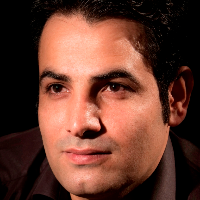Assessment of Factors Associated With Hookah Consumption Among College Students of Asad Abad City Base on The Theory of Planned Behavior (TPB) in 2015-2016
Author(s):
Article Type:
Research/Original Article (دارای رتبه معتبر)
Abstract:
Background And Objective
The Tobacco use is recognized as a global health problem. Considering the high prevalence of hookah consumption among college students and its risks and negative consequences on the human health, this study aimed to investigate the factors related to hookah consumption among college students of Asad abad city base on the theory of planned behavior (TPB).Methods
This cross-sectional study was carried out on 400 students of Asad abad universities between 2015 and 2016. The method was multi-stage sampling and the questionnaires were completed as a self-report. The data-gathering tools consisted of a questionnaire based on the TPB construct and demographic variables. The data were analyzed by SPSS-16 software with linear and logistic analysis.Results
The mean age of participants was [3/3 ± 72/22] years, the results showed that the prevalence of hookah consumption was 32% among students. In addition, among the variables of planned behavior theory, perceived behavioral control and positive attitude towards the most powerful consumption, the predictors had the intention to use a hookah. In total, 78.5% of the behavioral intention variance was explained by the constructs of TPB. Behavioral intention (ß =0/489) was better predictive for manner camped to perceived behavioral control (ß =0/115).Conclusion
Considering the effectiveness of the planned behavior theory to predict the hookah consumption, it seems that this theory can be used for planning to prevent the hookah and interventions among students. Training including all aspects affecting drug compliance is necessary.Keywords:
Language:
Persian
Published:
Journal of Health Education and Health Promotion, Volume:5 Issue: 4, 2018
Pages:
270 to 279
https://magiran.com/p1786577
مقالات دیگری از این نویسنده (گان)
-
Evaluation of the Integrated and Comprehensive Elderly Care Program of the Ministry of Health Based on the CIPP Model
Fatemeh Darabi, *, Elahe Ezati, Shirin Moredzadeh
Avicenna Journal of Aging and Healthcare, Autumn-Winter 2024 -
Factors Related to the Prevention of Influenza among Female High School Students in Hamedan: Application of Protection Motivation Theory
Mohadeseh Sadri, *, Saeid Bashirian, Salman Khazaei, Ensiyeh Jenabi, Alireza Soltanian, Elaheh Ezati, Sasan Navkhasi
Avicenna Journal of Nursing and Midwifery Care,


